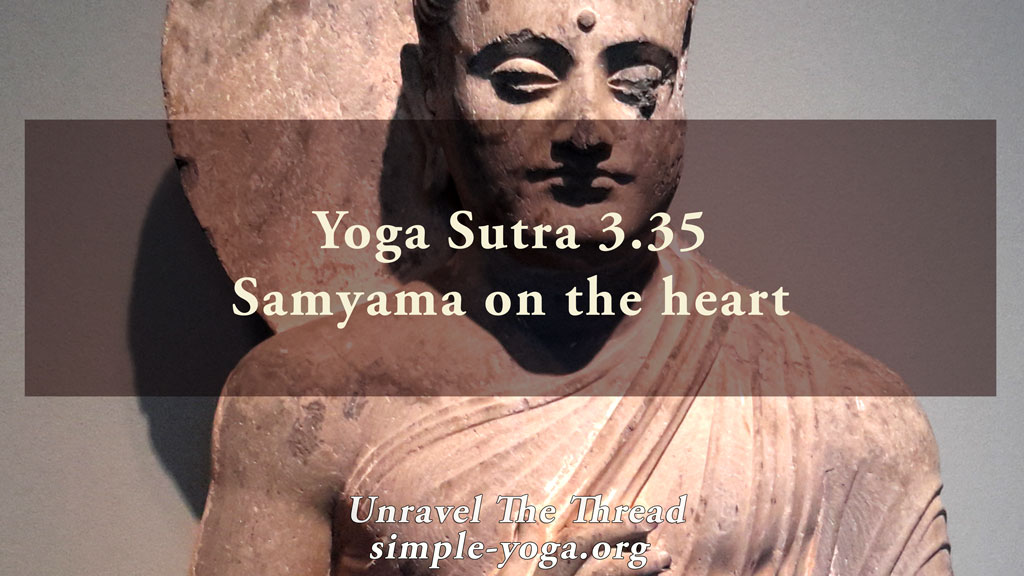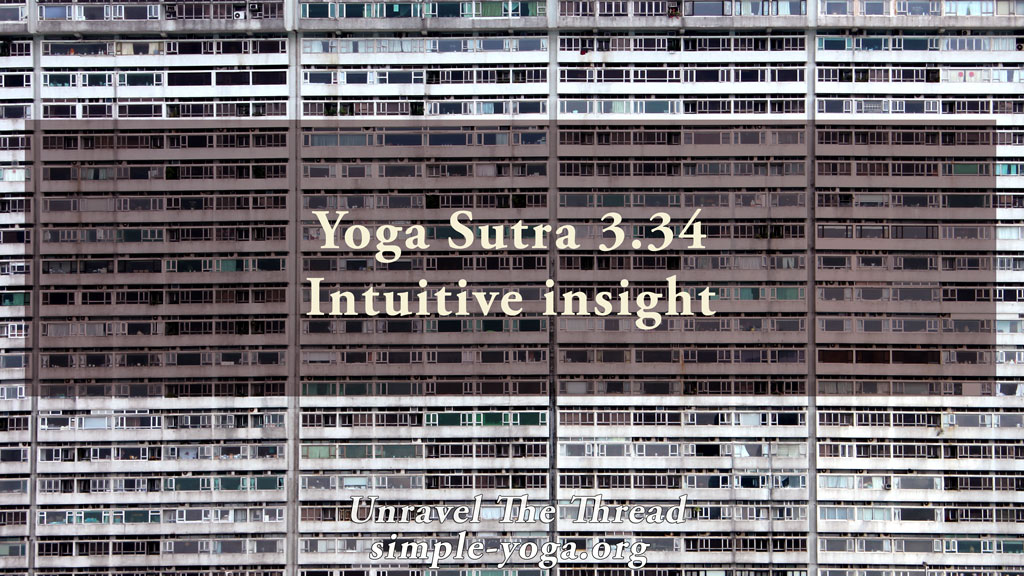
3.33 Samyama on the light in the crown of the head
December 28, 2021
3.35 Samyama on the heart
December 28, 2021
3.33 Samyama on the light in the crown of the head
December 28, 2021
3.35 Samyama on the heart
December 28, 20213.34 Intuitive insight

3.34 Or, by intuitive insight everything becomes known.
Reiterating the message from aphorism 1.48, this sutra points out that with increasing internal clarity you can have access to wisdom through effortless intuition. Continuing the thread from application of the previous sutra, you can explore if, after developing a certain level of inner stillness and silence, you become more sensitive and receptive to intuition (pratibha). It is understood that your internal agendas and beliefs will likely interfere with the insight you receive, often opening the door for doubt and uncertainty. This is part of the process of learning to trust your intuition. One approach is to practice asking questions for guidance on small things during your day to notice how insight manifests. For instance, as you go to work, can you ask for guidance on the best route to take?
What happens as you try this regularly?
Does this listening invite you to be more aware?
Does guidance lead you to engaging in more useful actions?
Is it possible that the skill of being open to guidance from your intuition can be cultivated through consistent practice (abhyasa) and without expectations (vairagya)?
One of the potential challenges is not being able to distinguish the insight you are receiving from what some aspect of you desires. Honing your capacity to distinguish between what is and what you want is the path for developing discriminative awareness (viveka in sutras 2.26 and 2.28). On the path to full discernment, your internal environment may feel lighter and perhaps more luminous. This brightness is another way to interpret the Sanskrit word pratibha, and it is the same inner light suggested as an object of single-pointed focus mentioned in aphorism 1.36. That is also the same inner light revealed by practicing pranayama (2.52) as well as the light mentioned in sutra 3.26.
Notice also that this sutra is related to the practice of utmost humility (ishvara pranidhana in sutras 1.23 and 2.45). Relinquishing the illusion of control requires trusting that whatever you need to know and whatever you need access to will become available at the precise moment needed, neither before nor after. Moreover, consider that the more occupied you are with your ways of being (your beliefs, opinions and drama) the less likely it is for you to recognize insights. Once you quiet your mind, the insights become more evident in many of the experiences that you have during your day. When you notice a silent suggestion, beware of the potential interference of your tendencies and inclinations. Remember that you are in charge of making your choices, and the insights guiding you to transcend your current level of understanding will possibly ask you to step beyond the boundaries of your comfort zone. This is what learning means.
As usual, one more way of exploring the meaning of this sutra is by chanting it.
You can choose to chant it in its traditional form with some of the words coming together:
3.34 prātibhādvā sarvam
प्रातिभाद्वा सर्वम् ॥३४॥
Another option is to chant each word in the sutra individually:
- prātibhāt
- vā
- sarvam
If you prefer, you may listen to the podcast:
This is an excerpt from the book Unravel the thread: Applying the ancient wisdom of yoga to live a happy life
If you find Simple-Yoga.org and Unravel the thread useful, consider supporting my labor with a donation, you may also donate using PayPal or Venmo. Thank you!
